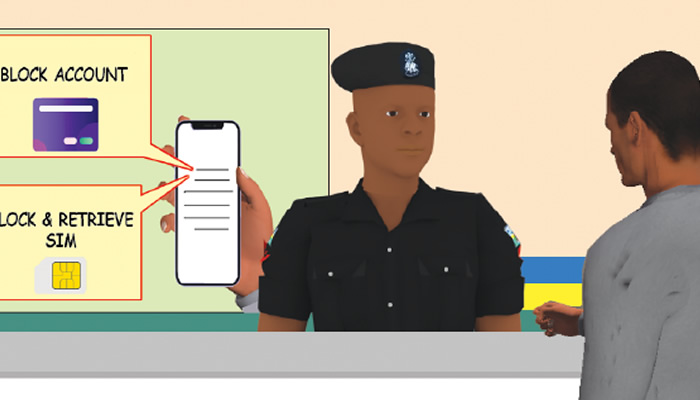
A robbery is an unplanned eventuality that can happen at home, in a public gathering, at the mall, while in transit, at the bank, religious events, etc.
Aside loss of valuables, documents and other personal belongings, destruction of properties and many a time, loss of lives, such incidents also leave the victims in fear and trauma.
Sadly, robbery cases, alongside other insecurity situations, are on the rise. Rarely does a day pass without several reports of robbery incidents in several places in the country.
“One-chance” robbers are now using commercial vehicles as a way of getting innocent commuters into their trap. A recent crime report shows an arrest of 146 armed robbers in 149 foiled attempts between November 2021 and November 2022.
This situation further calls for thorough vigilance and knowledge of safety measures to prevent or mitigate the effects of the incident.
Here are eight of the inexhaustible tips on what to do after a robbery incident.
Find a safe place
After a robbery attack, it is advisable to leave the vicinity and seek out a safe place. If the robbery happened at your place of residence while you were away, immediately leave the area, seek a safe place and then call the security agents.
A safety consultant and security expert, Mr Festus Okoloda, says, “It is important to keep people out of the area. Make sure people do not have access to the area where the incident occurred until an investigation is carried out before others are allowed to come back in.”
Call the police
Once at a safe place, call the police. A retired army veteran and National Secretary, Retired Members of Nigeria Armed Forces, Roy Okhidievbie, reiterates that after a property or residential burglary or in-transit robbery attack, victims should call the police to report the incident.
Okoloda adds, “Ensure that you are in a safe location after the incident, then call for help. While you await help, do not be alone.”
Stay calm
Staying calm helps the victim to be alert, in control of the situation and to recollect important details of the incident, which can guide the police on the next course of action.
The safety consultant advises, “Learn to stay calm during the event because if you are not calm, you cannot give a detailed report of the incident. It is fine not to have answers for everything on the day of questioning; you respond to the questions that you know the answers to.”
Go for medical help if any casualty
A robbery incident affects the life and health of the victims. In a robbery incident involving many victims, those injured or have panic attacks should be taken to the hospital for treatment.
It is advisable to await the presence of medical personnel or emergency responders before lifting or administering medications to the patients.
Also, the victims of any robbery attack need to see a health professional who will certify their mental and physical state of health.
“Most of the people who witnessed the incident might have mood swings and still be traumatised about the incident. They should be on bed rest and taken to see a psychologist who would help them to walk over the effect of the incident on their minds and composure,” Okoloda says.
Get a photo, video evidence of the scene
Okhidievbie advises victims to take photographs and video recordings of the scene.
He adds, “If possible let the police witness the scene in case there is a need for forensic capturing as they commence an investigation.”
Okoloda advises that any evidence, for example, a forgotten item from the robbers, should be reported to the police for further investigation and gathering of fingerprints.
He also says, “Any description of the culprits such as the height, colour of clothes, shape of the face that can be remembered, should be given to the police to help with the investigation. Let the witnesses also give their accounts to the police. Victims and eyewitnesses are not permitted to discuss such details with other people aside police personnel, for security reasons.”
Take stock of losses
All these may not be done on the day of the robbery incident, especially when the victim(s) is still traumatised or receiving treatment in the hospital. As soon as possible, try to take a stock of what was stolen and the extent of damage done.
Okoloda, however, warns that the amount of money and the worth of goods stolen should be kept private.
“It should be information for only the police and investigation team,” he says.
The army veteran adds that if possible, receipts of the stolen items should be presented to the police “to back up as evidence.”
Call your bank
In cases where the automated teller machine cards, chequebook and devices with financial information are stolen, it is advisable to call your bank to place an immediate block on your account.
Another alternative is to get the emergency blocking code of your bank to block your account from your end. It is also necessary to call your network provider to block your mobile telephone number to prevent the robbers from exploiting your contacts or using your device to get a loan from your bank.
Beef up/upgrade security
Okhidievbie says, “Upgrade the security of the facility in the area in terms of installing access control, burglar proof, closed circuit television surveillance camera, response alarm, etc. Depending on who was involved, follow adequate security tips on your trip, area and timing. Get fortified with self-defence equipment, that is, pepper spray, and portable shock stun.




